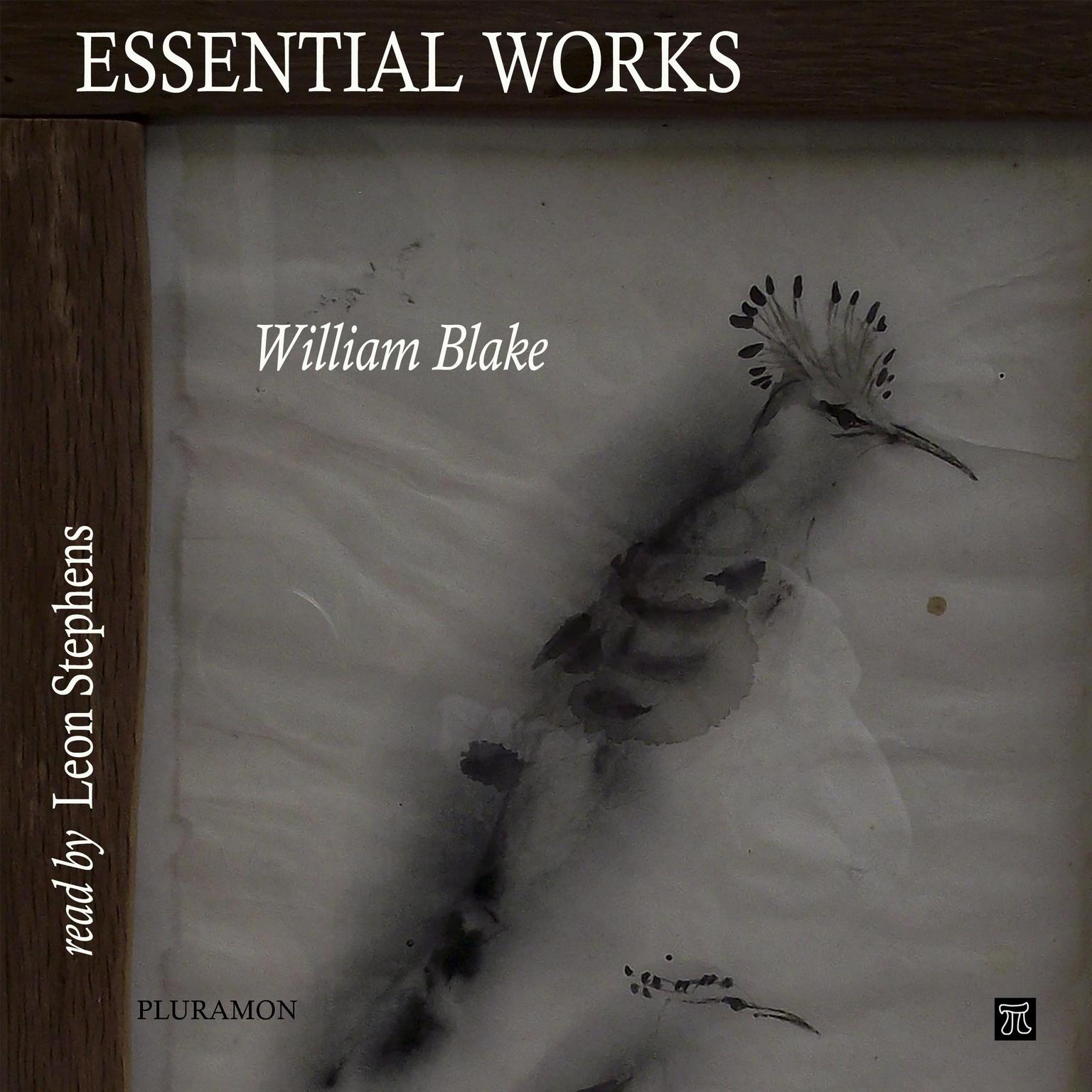 Play Audiobook Sample
Play Audiobook Sample
Essential Works of William Blake Audiobook
 Play Audiobook Sample
Play Audiobook Sample
Quick Stats About this Audiobook
Total Audiobook Chapters:
Longest Chapter Length:
Shortest Chapter Length:
Average Chapter Length:
Audiobooks by this Author:
Publisher Description
Here are eight fundamental works by one of the few greatest English poets: three lyric pieces, Songs of Innocence, The Book of Thel, Songs of Experience; the prose satire An Island in the Moon, the mystical prose poem The Marriage of Heaven & Hell, and three visionary poems: The French Revolution, Visions of the Daughters of Albion, America, a Prophecy. William Blake (1757-1827) is one of the great relevant figures of his time, who like Beethoven in music bridges the classical and romantic, remaining himself uncategorizable.
Download and start listening now!
Essential Works of William Blake Listener Reviews
Be the first to write a review about this audiobook!
About William Blake
William Blake (1757–1827) was an English poet, artist, and printmaker. Although largely unrecognized during his lifetime, he is now considered a seminal figure in the history of both the poetry and visual arts of the Romantic Age. He is held in high regard by critics for his expressiveness and creativity and for the philosophical and mystical undercurrents within his work. He produced a diverse and symbolically rich body of works that embraced the imagination as “the body of God” or “human existence itself.” Reverent of the Bible but hostile to the Church of England, he was influenced by the ideals and ambitions of the French and American revolutions, as well as by such thinkers as Emanuel Swedenborg.










